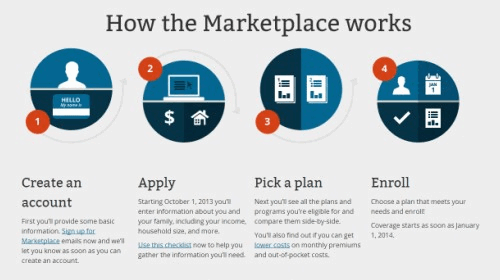There are only 41 days left until open enrollment begins under the Affordable Care Act’s (“ACA’s”) Health Insurance Marketplace. Starting October 1st individuals can enroll in insurance plans for coverage beginning on January 1, 2014. The Marketplace brings a range of options to HIV+ people for high quality insurance at lower costs.

All private health insurance plans offered in the Marketplace will offer the same set of essential health benefits. These benefits include areas of significant importance to HIV+ people such as prescription drugs, lab services and chronic disease management. Without the ACA, private insurance options have varied widely from limited or no coverage in some states to very expensive comprehensive coverage in other states. For example, in New York where there are no exclusions for pre-existing conditions such as cancer, diabetes, heart disease or being HIV+, individual HMO coverage with a major insurer currently costs $1,409 per month. This price point can be extremely unaffordable for many HIV+ older adults. As the ACA is implemented in January 2014, “gold” level coverage from the same insurer will cost $688 per month. That’s $721 less a month or $8,652 more a year in an HIV+ older person’s pocket. For HIV+ older people, the Health Insurance Marketplace is yet another major benefit of the Affordable Care Act.
Historically, people living with HIV and AIDS have had a difficult time getting, maintaining, and affording comprehensive private health insurance. Currently, fewer than one in five (17%) people living with HIV has private insurance and nearly 30% do not have any coverage. Medicaid and Medicare are major sources of coverage as are the state-based ADAP (“AIDS Drug Assistance Program”) programs that are partially funded by the Ryan White HIV/AIDS Program.
ACA has already ended lifetime dollar limits on coverage of essential health benefits, cracked down on frivolous cancellations of policies and made it illegal to arbitrarily cancel health insurance just because the policy holder got sick. Beginning in 2014, insurers will not be allowed to deny coverage due to a pre-existing health condition – an enormous benefit to HIV+ older adults. Yearly dollar limits on coverage of essential health benefits are also no longer allowed. People with low and middle income will be eligible for tax subsidies to help them buy coverage in the new Health Insurance Marketplace.
The ACA also gives states the option to broaden Medicaid eligibility to include individuals with income below 133% of the Federal poverty line ($15,282 for an individual and $31,322 for a family of 4 in 2013). As a result, in participating states, a person living with HIV who meets this income threshold will no longer have to wait for an AIDS diagnosis in order to become eligible for Medicaid. The ACA also closes over time the Medicare Part D prescription drug benefit “donut hole” making it easier for Medicare enrollees with HIV/AIDS to afford their medications. ADAP benefits are now considered as contributions toward Medicare Part D’s True Out of Pocket Spending Limit, enabling ADAP clients to move through the donut hole more quickly.
As outlined above, the ACA in many ways makes it easier for HIV+ people to get, to maintain and to afford high quality health coverage. And high quality coverage is necessary, especially as HIV+ people age. While the studies vary and are incomplete, there is a growing body of evidence that HIV and/or HIV medications are taking a toll on the long term HIV+. Those with HIV seem to be more likely to develop cardiovascular disease, cancer, diabetes and chronic respiratory disease. The HIV medications, especially the older ones, seem to raise the risk for osteoporosis, chronic liver and renal disease and dementia. Thus the need for high quality affordable health care is large and the implementation of the ACA couldn’t come at a better time!

